Ceramic tile has emerged as a timeless flooring option that combines both beauty and durability. In recent years, its popularity has soared as consumers recognize its ability to enhance the aesthetics of any space while offering unparalleled functionality. This article delves into the various advantages of using ceramic tile, its applications in both residential and commercial settings, and essential factors to consider when selecting the perfect tile for your project. 1. Advantages of Ceramic Tile: Ceramic tile offers numerous advantages that set it apart from other flooring options. Its durability ensures long-term functionality, with some tiles lasting for decades. Ceramic tile is also known for its resistance to stains, scratches, and moisture, making it ideal for high-traffic areas such as kitchens and bathrooms.
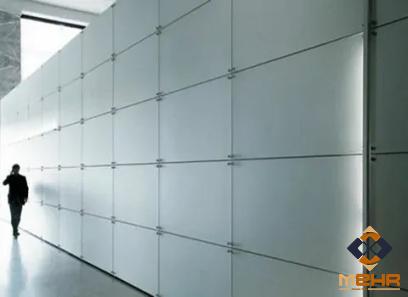
.
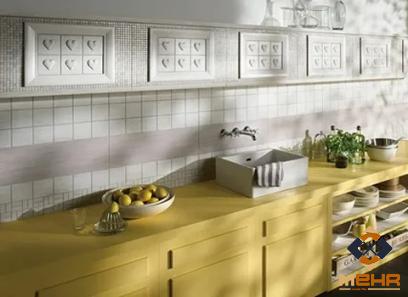 Moreover, its low-maintenance nature and easy cleaning process make ceramic tile an excellent choice for any busy individual or business. 2. Versatile Applications: Ceramic tile’s versatility allows it to be used in a wide range of environments. In residential settings, it can create an inviting atmosphere in living rooms, kitchens, bedrooms, and even outdoor spaces such as patios and pool decks. Commercial applications include hotels, retail stores, restaurants, and offices, where durability and style are equally important. Additionally, ceramic tile can be used for accent walls, backsplashes, and even as decorative elements, showcasing the creative potential of this material. 3. Factors to Consider: Selecting the right ceramic tile involves considering various factors to achieve the desired outcome. Firstly, the tile’s durability and resistance to wear and tear are vital, especially in high-traffic areas. Furthermore, the color and pattern of the tile should complement the overall design scheme of the space, ensuring a cohesive and visually appealing result. Additionally, different tile sizes and shapes can be explored to create unique patterns and visual interest.
Moreover, its low-maintenance nature and easy cleaning process make ceramic tile an excellent choice for any busy individual or business. 2. Versatile Applications: Ceramic tile’s versatility allows it to be used in a wide range of environments. In residential settings, it can create an inviting atmosphere in living rooms, kitchens, bedrooms, and even outdoor spaces such as patios and pool decks. Commercial applications include hotels, retail stores, restaurants, and offices, where durability and style are equally important. Additionally, ceramic tile can be used for accent walls, backsplashes, and even as decorative elements, showcasing the creative potential of this material. 3. Factors to Consider: Selecting the right ceramic tile involves considering various factors to achieve the desired outcome. Firstly, the tile’s durability and resistance to wear and tear are vital, especially in high-traffic areas. Furthermore, the color and pattern of the tile should complement the overall design scheme of the space, ensuring a cohesive and visually appealing result. Additionally, different tile sizes and shapes can be explored to create unique patterns and visual interest.
..
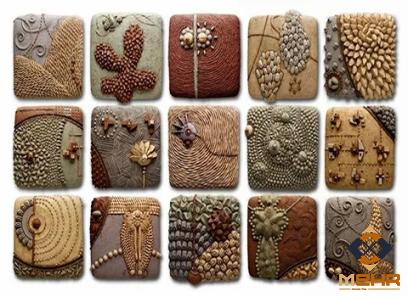 Lastly, the reputation of the manufacturer and the tile’s certification should be assessed to guarantee the quality and reliability of the product. 4. Trends and Innovation: The ceramic tile industry is constantly evolving, and staying up-to-date with the latest trends and innovations is crucial. Wood-look ceramic tiles are currently in high demand, offering the warmth and beauty of hardwood flooring with the added benefits of durability and ease of maintenance. Large-format tiles are also gaining popularity, providing a seamless and visually appealing effect. Furthermore, advancements in technology have led to the development of digital printing techniques, allowing for intricate patterns and designs on ceramic tiles. Conclusion: Ceramic tile remains an outstanding choice for flooring and other surfaces due to its durability, aesthetic appeal, and versatility. Its wide range of applications, coupled with the ability to withstand heavy use and changing design trends, make ceramic tile a wise investment for both residential and commercial projects. By considering factors such as durability, design, and innovation, individuals and businesses can maximize the benefits of ceramic tile to create stunning and functional spaces that stand the test of time.Furthermore, ceramic tile offers a multitude of benefits that go beyond its aesthetics and durability. One significant advantage is its ecologically friendly nature. Ceramic tile is made from natural materials, such as clay, sand, and water, making it a sustainable and environmentally conscious choice. Additionally, many ceramic tiles are manufactured using recycled content, further reducing environmental impact.
Lastly, the reputation of the manufacturer and the tile’s certification should be assessed to guarantee the quality and reliability of the product. 4. Trends and Innovation: The ceramic tile industry is constantly evolving, and staying up-to-date with the latest trends and innovations is crucial. Wood-look ceramic tiles are currently in high demand, offering the warmth and beauty of hardwood flooring with the added benefits of durability and ease of maintenance. Large-format tiles are also gaining popularity, providing a seamless and visually appealing effect. Furthermore, advancements in technology have led to the development of digital printing techniques, allowing for intricate patterns and designs on ceramic tiles. Conclusion: Ceramic tile remains an outstanding choice for flooring and other surfaces due to its durability, aesthetic appeal, and versatility. Its wide range of applications, coupled with the ability to withstand heavy use and changing design trends, make ceramic tile a wise investment for both residential and commercial projects. By considering factors such as durability, design, and innovation, individuals and businesses can maximize the benefits of ceramic tile to create stunning and functional spaces that stand the test of time.Furthermore, ceramic tile offers a multitude of benefits that go beyond its aesthetics and durability. One significant advantage is its ecologically friendly nature. Ceramic tile is made from natural materials, such as clay, sand, and water, making it a sustainable and environmentally conscious choice. Additionally, many ceramic tiles are manufactured using recycled content, further reducing environmental impact.
…
 Moreover, ceramic tile boasts excellent thermal properties, making it an efficient option for spaces that require temperature control, such as bathrooms and kitchens. The tile’s ability to absorb and retain heat ensures a comfortable and energy-efficient environment. In terms of health and safety, ceramic tile is a hypoallergenic flooring solution. It does not harbor allergens, mold, or bacteria, making it ideal for individuals with respiratory or allergy-related conditions. Additionally, ceramic tile is fire-resistant, providing an added level of safety and peace of mind. Installation and maintenance play crucial roles in maximizing the longevity and beauty of ceramic tile. Proper installation by experienced professionals is essential to ensure that the tiles are evenly aligned and securely set. Regular cleaning using mild detergents and non-abrasive techniques is recommended to maintain the tile’s original luster and prevent the buildup of dirt and grime. Additionally, periodic sealing of grout lines and tile surfaces helps protect against staining and moisture infiltration. To guarantee the best results, it is advisable to consult a reputable tile supplier or professional that can offer expert guidance on product selection, installation techniques, and maintenance tips. They can assist in determining the most suitable ceramic tile for specific needs and budgets, ensuring a successful and long-lasting project. In conclusion, ceramic tile remains an evergreen choice in the world of flooring and surface materials. Its unrivaled combination of aesthetic appeal, durability, versatility, and eco-friendliness makes it an ideal solution for both residential and commercial projects. By considering crucial factors such as durability, design, innovation, and environmental impact, individuals and businesses can harness the full potential of ceramic tile to create exceptional spaces that seamlessly blend style and functionality.
Moreover, ceramic tile boasts excellent thermal properties, making it an efficient option for spaces that require temperature control, such as bathrooms and kitchens. The tile’s ability to absorb and retain heat ensures a comfortable and energy-efficient environment. In terms of health and safety, ceramic tile is a hypoallergenic flooring solution. It does not harbor allergens, mold, or bacteria, making it ideal for individuals with respiratory or allergy-related conditions. Additionally, ceramic tile is fire-resistant, providing an added level of safety and peace of mind. Installation and maintenance play crucial roles in maximizing the longevity and beauty of ceramic tile. Proper installation by experienced professionals is essential to ensure that the tiles are evenly aligned and securely set. Regular cleaning using mild detergents and non-abrasive techniques is recommended to maintain the tile’s original luster and prevent the buildup of dirt and grime. Additionally, periodic sealing of grout lines and tile surfaces helps protect against staining and moisture infiltration. To guarantee the best results, it is advisable to consult a reputable tile supplier or professional that can offer expert guidance on product selection, installation techniques, and maintenance tips. They can assist in determining the most suitable ceramic tile for specific needs and budgets, ensuring a successful and long-lasting project. In conclusion, ceramic tile remains an evergreen choice in the world of flooring and surface materials. Its unrivaled combination of aesthetic appeal, durability, versatility, and eco-friendliness makes it an ideal solution for both residential and commercial projects. By considering crucial factors such as durability, design, innovation, and environmental impact, individuals and businesses can harness the full potential of ceramic tile to create exceptional spaces that seamlessly blend style and functionality.
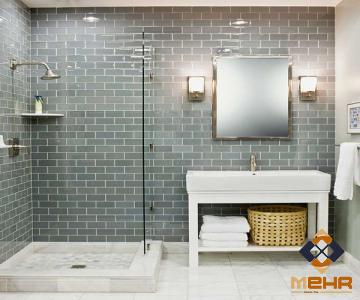
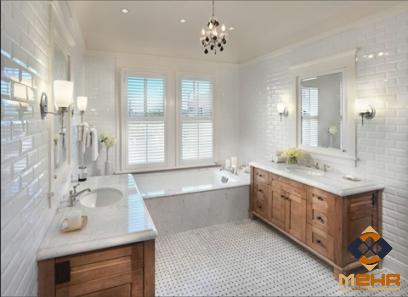


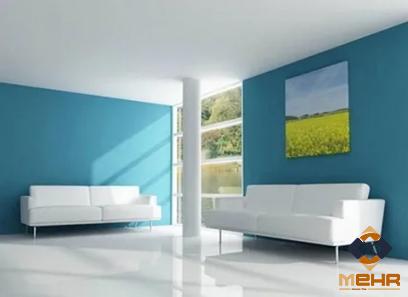
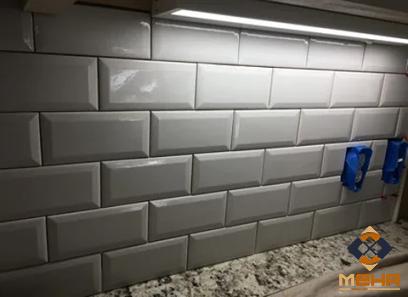
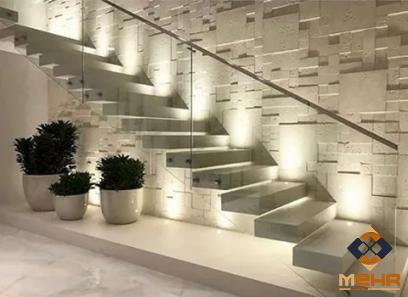
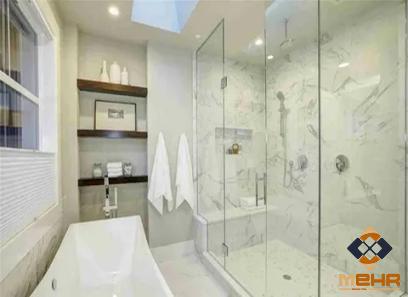
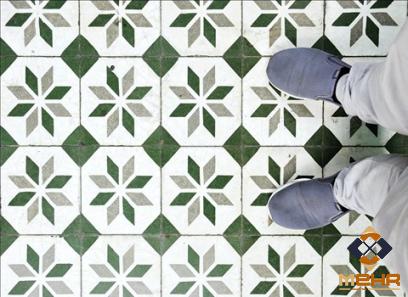
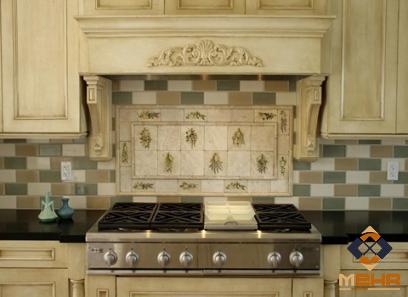
Your comment submitted.